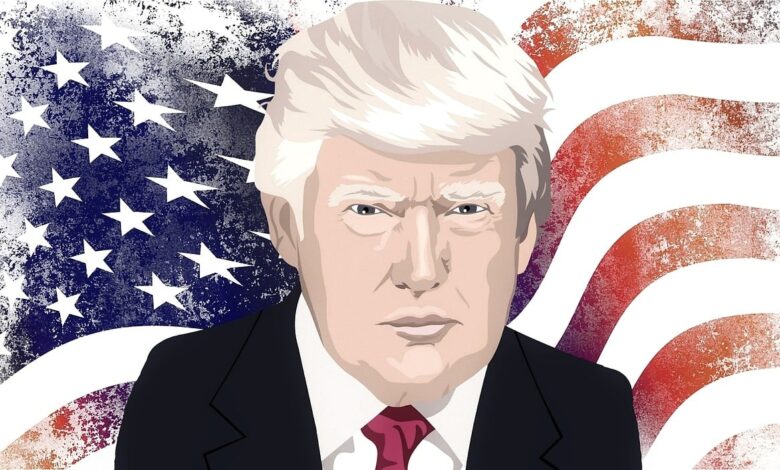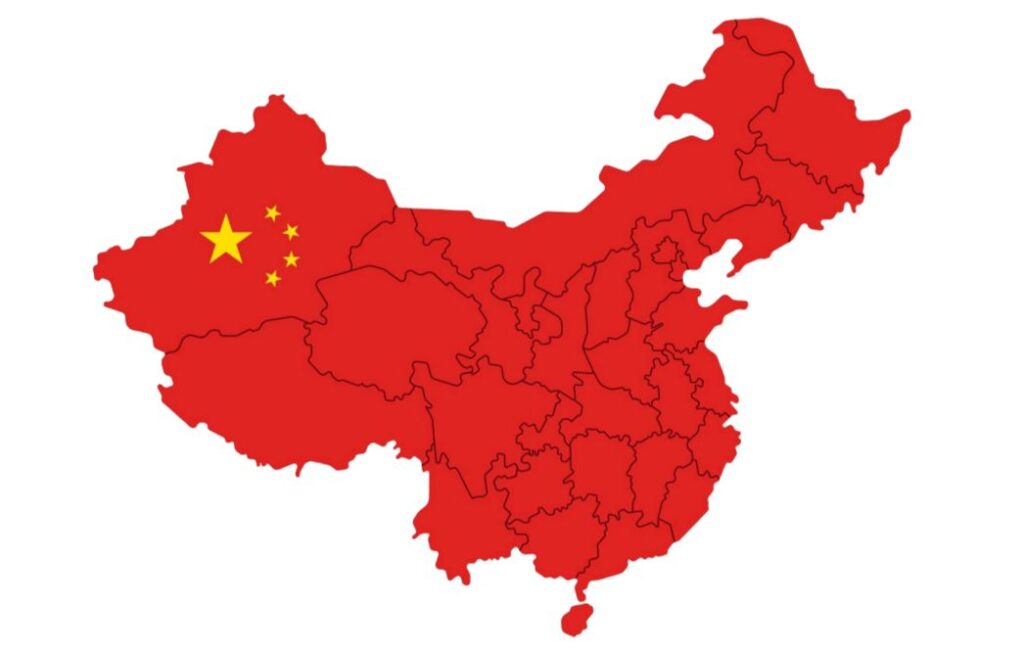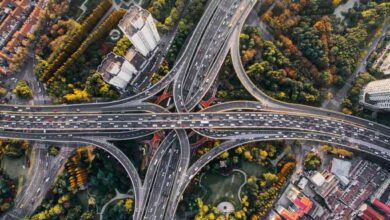
- Knowledge is power
- The Future Of Possible
- Hibs and Ross County fans on final
- Tip of the day: That man again
- Hibs and Ross County fans on final
- Spieth in danger of missing cut
How might Beijing react?
One described China as an “existential threat,” another advocated for a “whole-of-society effort” to counter Beijing and was sanctioned twice by Chinese authorities, while a third asserted that China’s military is “specifically dedicated to defeating the United States of America.
US President-elect Donald Trump’s proposed cabinet is filled with prominent China critics, signaling an intent to challenge America’s rising superpower rival across a broad range of issues, from economic policy to national security.
However, unlike during Trump’s inauguration eight years ago, Chinese leaders may now be better prepared for a more combative stance.
Experts suggest that this time, Beijing is better equipped to handle both Trump’s transactional leadership style and the ideological hardliners in his circle. They may aim to establish backchannels through more China-friendly figures in Trump’s orbit, such as Elon Musk.
Despite this strategy, analysts remain pessimistic about the future of US-China relations under Trump. On the campaign trail, he vowed to impose tariffs of over 60% on Chinese imports, and this week he announced plans for an additional 10% levy on top of existing tariffs.
“Looking at Trump’s team, it’s clear that most, if not all, are staunch China hawks,” said Yun Sun, director of the China Program at the Stimson Center in Washington. “These appointments signal a hardline approach aimed at escalating competition with China, and I doubt Beijing views any of them as a positive development.”
Some Chinese foreign policy experts believe that President-elect Trump ultimately seeks a deal with China and may prove more flexible than his cabinet choices suggest.
Trump appears primarily focused on the economic challenge posed by China, whereas many officials in his incoming administration—spanning the National Security Council and the departments of State and Defense—are more concerned with military and security threats, explained Hal Brands, a professor of global affairs at Johns Hopkins School of Advanced International Studies.
“The key question is whether Trump’s economic hawkishness on China can be leveraged to implement strong and assertive security policies, or if his relative disinterest in those areas will make such efforts more difficult,” Brands noted.
Trump’s national security adviser pick, Rep. Mike Waltz, has twice declared that the Chinese Communist Party is waging a “cold war” against the U.S. His nominee for secretary of state, Sen. Marco Rubio, widely known in China as the “anti-China vanguard,” is currently sanctioned by Beijing. Meanwhile, Pete Hegseth, the former FOX News host nominated for defense secretary, has warned of China’s ambitions to defeat the U.S. and achieve global dominance.
Wu Xinbo, director of the Center for American Studies at Shanghai’s Fudan University, emphasized the need for Beijing to differentiate between President-elect Trump and his hawkish advisers.
“While many of the hardliners advocate for full confrontation and decoupling with China, is that genuinely Trump’s goal for US-China relations? If not, Trump may ultimately moderate their policy actions,” Wu explained.
The Musk Influence
The presence of staunch China hawks in the incoming administration is likely to heighten Beijing’s urgency to find alternative channels to influence Trump—starting with Elon Musk.
The billionaire Tesla founder has significant business ties to China, where his company produces half of its electric vehicles. Musk frequently meets with Chinese officials during his visits, making him a potential communication conduit.
“Everyone is watching to see what role Elon Musk might play regarding China,” said Sun. “Beijing undoubtedly hopes he can serve as a channel of communication and potentially have a positive influence.”
Musk has occasionally aligned with Beijing’s rhetoric, advocating for a “win-win” economic relationship and even referring to Taiwan as an “integral part of China.” The future of Tesla, one of Musk’s key ventures, could depend heavily on the trajectory of US-China relations over the next four years.
However, whether Musk is willing—or able—to shape US policy in China’s favor remains uncertain.
“Trump appears to have positioned Musk primarily in the realm of government efficiency, so I don’t foresee him taking on a major role in foreign affairs,” said Lyle Morris, a senior fellow at the Asia Society Policy Institute. “That said, given Elon’s substantial business interests in China, Trump is likely to at least consider his views on the US-China business relationship.”
Beijing Braces for Turbulence

Regardless of specific strategies, Beijing is preparing for a challenging period ahead. Economists warn that Trump’s proposed 60% tariffs could severely impact China’s already struggling economy, potentially slashing its growth rate by half.
Trump’s pick for treasury secretary, hedge fund executive Scott Bessent, has described tariffs as “a useful tool for achieving the president’s foreign policy objectives,” framing Trump’s tariff threats as a “maximalist negotiating position.”
Similarly, Jamieson Greer, nominated as US trade representative, previously served as chief of staff to Robert Lighthizer, the architect of Trump’s earlier trade war with China. Greer has echoed Lighthizer’s hardline approach, advocating for “strategic decoupling” from Beijing.
Wu Xinbo of Fudan University cautioned that China should brace for significant challenges in its relationship with the US, spanning trade, diplomacy, and security. “The outlook is grim,” he said.
One immediate challenge for Beijing is deciding how to handle sanctions on Marco Rubio, imposed in retaliation for US penalties on Chinese officials over actions in Xinjiang and Hong Kong. As Rubio prepares to become the first US Secretary of State under Beijing sanctions, questions arise over whether he will even be allowed to visit China in his new role.
While experts are divided on whether Beijing will lift the sanctions, most believe China’s pragmatic approach will prevent them from obstructing diplomatic protocols. Surprisingly, Rubio isn’t seen as the worst-case scenario by Chinese analysts.
“Many in China breathed a sigh of relief when Trump announced he wouldn’t invite former Secretary of State Mike Pompeo to join his new administration,” Wu noted. “Pompeo, in some ways, directly catalyzed the decline in China-US relations.”
Pompeo, sanctioned by Beijing alongside over two dozen Trump-era officials when Biden took office, had once called on the Chinese people to join an international effort to “change the behavior” of their government. His absence, some believe, offers a small reprieve amid the mounting tensions.
Taiwan and Beijing’s ‘Red Lines’
Some Chinese experts contend that Beijing now has a more nuanced understanding of Trump’s approach and is better equipped to handle his second presidency.
“China is no longer the same as it was eight years ago when Trump first took office, in terms of mindset, strength, or international standing. China has gained more status and confidence,” said Wang Yiwei, a professor of international studies at Renmin University in Beijing.
“We now understand Trump’s personality—if China shows any sign of weakness, he will push further. Therefore, China absolutely cannot make concessions, especially at the outset,” he added.
Chinese leaders will be particularly focused on the stance of Trump’s new foreign policy team regarding Taiwan, a crucial “red line” for Beijing.
Rubio has been a steadfast advocate for Taiwan, the self-governing democracy that Beijing has vowed to bring under its control, by force if necessary. He has pushed legislation aimed at strengthening ties between Washington and Taipei, including fast-tracking US arms sales to the island.
Taiwan’s President Lai Ching-te congratulated Rubio on his nomination via a post on X, thanking him for his “staunch support for Taiwan” and expressing hope for “furthering Taiwan-US relations.”
Meanwhile, Trump’s national security pick, Rep. Mike Waltz, has urged the next US president to resolve conflicts in Ukraine and the Middle East swiftly and to refocus attention on Asia to better prepare for a potential Chinese invasion of Taiwan—a position that Trump’s running mate, JD Vance, also frequently voiced on the campaign trail.
However, that doesn’t necessarily mean Trump, whose “America First” agenda has often leaned toward a more isolationist foreign policy, is eager for overseas conflict. Instead, he has consistently viewed international alliances and Washington’s historical commitments through a transactional lens, often praising autocratic leaders abroad.
On the campaign trail, Trump accused Taiwan of “stealing” the chip industry from the US and suggested that the self-governing democracy should pay for American protection.
Industry experts argue that Taiwan’s semiconductor industry grew through a combination of foresight, investment, and hard work. The island has also relied heavily on US arms manufacturers for its military needs in recent decades. Nevertheless, Trump’s rhetoric indicated a more transactional approach to Taiwan.
When asked by The Wall Street Journal whether he would use military force against a Chinese blockade of Taiwan, Trump said it would not come to that because he believed Xi Jinping respected him and understood he was “crazy.” Instead, Trump proposed imposing tariffs of 150% to 200% on Beijing.
Wang, the professor at Renmin University, said that, regardless of their ideological leanings, Trump’s cabinet picks will ultimately have to align with his vision.
“I believe Trump is willing to make deals with China, and he will ensure his team stays on course,” Wang concluded.





Hi, this is a comment.
To get started with moderating, editing, and deleting comments, please visit the Comments screen in the dashboard.